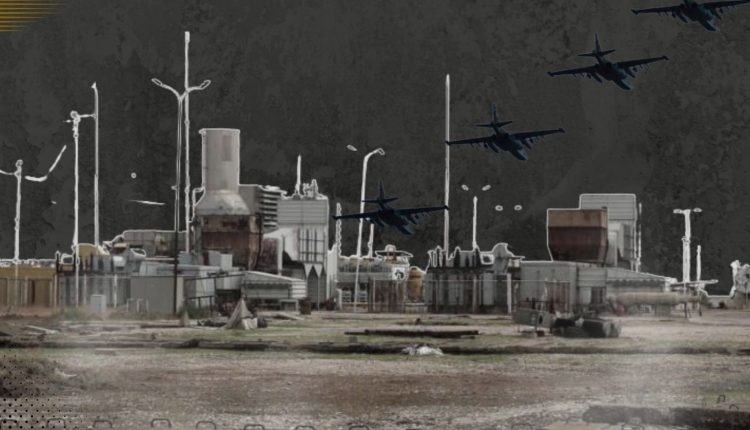In the wake of the Turkish escalation in the areas of northern and eastern Syria, significant damage of both a human and financial nature has been caused. This led to the shutdown of several vital facilities, including the Qamishlo and Amuda power plants, oil sites, hospitals, and the Suwaydiya Gas and Electricity Plant.
Last Friday, the Suwaydiya gas and electricity plant in the Derik countryside in the far northeast of Syria was completely shut down due to a series of Turkish attacks and bombardments. Aqeed Abdel Majeed, an administrator at the Suwaydiya gas plant, told the local North Press agency about the devastating events. He stated, “At 11 a.m., the bombing of the Suwaydiya plant began. First, the gas turbines that generate electricity for the cities of Hasaka, Qamishli, Ad Darbasiyah, and Amuda were destroyed. As a result, three turbines failed. “Akid Abdul Majeed confirmed that the Turkish bombings focused on six oil, gas, and electricity sites near Suwaydiya, adding, “The cost of restoration will be high, and production losses are estimated at millions of dollars.”
Prior to the Turkish bombardment, the plant produced 500,000 cubic meters of clean gas daily, which it sent to electricity turbines to generate 40 megawatts of electricity. The Suwaydiyah station supplied the Syrian towns of Jazira with 50 percent of its regular electricity. As a result, residents of the region are now without electricity, affecting water supplies that rely on electricity, and thus other livelihoods that residents need.
The Autonomous Administration of Northern and Eastern Syria stated yesterday that the Turkish bombing has left more than two million people without water and electricity. It stressed in a press conference in the northern Syrian city of Qamishlo that the Turkish escalation in the regions of northern and eastern Syria undermines counterterrorism efforts and worsens the humanitarian situation and living conditions in northern and eastern Syria. This escalation is leading to increased migration and destruction, which runs counter to all international approaches to resolving the Syria crisis, including Resolution 2254 of 2015, AANES said.

